The Future's Not What It Used To Be
Jeremy Braddock Reframes The Firesign Theatre's Psyop of Silly


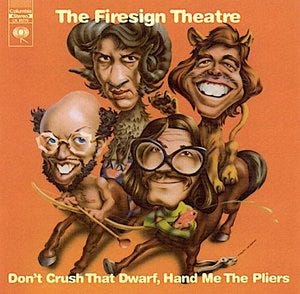
I spoke with Cornell’s Jeremy Braddock about his new book Firesign: The Electromagnetic History of Everything as Told on Nine Comedy Albums (California University Press). We started with some of the more obvious Beatle connections and talked through the catalog. If you haven’t sampled these albums yet, start with Bozos, widely considered the most accessible yet spine-cracking. He runs a juicy Substack with FT interviews and asides called Giant Slide 19 Holes Underground Parking. Like a lot of the great subversive creators from that period, Firesign helps you understand the way people thought and behaved, but they also get at the root of this country’s delusions…
JB: That’s the first thing most people notice—Firesign’s second album is called How Can You Be Two Places At Once When You’re Not Anywhere At All? They started recording it in the fall of ’68 and finished in early ’69. Anyone who’s heard that record knows the Beatles will recognize maybe 20, 25 Beatles references on it.
They were definitely aware that their audience was also the Beatles audience. There’s a lot more to say about that, partly because—as far as I know—they never made a Beatles reference again. Jumping ahead, what’s interesting is that record was released in July ’69 and peaked on the charts exactly when the Manson murders were becoming national news, and also when the "Paul is Dead" conspiracy started circulating. All three things are evidence of how Beatles albums—starting with Rubber Soul—were being listened to like literature, but also mined for references and clues. In Manson’s case and "Paul is Dead," that led to pretty unsettling results.
One of the really smart things that agreed upon at the beginning was that they wanted to record a comedy album that that you could and maybe had to listen to as many times as people were listening to Sgt. Pepper…
That’s the dark side. Firesign really thought carefully about how information circulated in the ’60s and ’70s, and how it depended on media and mediation. I’ve already gotten to one of the thick things I think about in my book, but there are more general points of connection too.
They formed in LA in late 1966 and got a Columbia contract in spring ’67. By then, they’d been improvising on radio—they had an overnight show on KPFK, the Pacifica station in LA. They got so popular that KRLA, the big AM pop station in LA (the one most tied to bringing the Beatles there in ’64), picked them up. When they arrived at KRLA, it was the dawn of the so-called Summer of Love.
One thing I discovered in research: advance mixes of Sgt. Pepper were circulating before its June 1 release. They had early mixes of the record when they went into Columbia to record their first album. One really smart thing they agreed on was making a comedy album you’d want to listen to as many times as people listened to Sgt. Pepper. Like Robert Christgau says, most comedy records you hear once and laugh, but do you play them again? They borrowed what they thought the Beatles were doing with studio techniques to make their Columbia records.
TR: Tell me more about how they got signed to Columbia. Who signed them? Were tapes of their radio shows circulating underground?
JB: I don’t know if tapes were circulating that early, but I talked to Roger Steffens—later a legendary reggae DJ in Santa Monica—who was drafted in ’68 and did two tours in Vietnam. He worked in psychological ops, had a Saigon apartment with fancy hi-fi, and a friend at KMPX (later KSAN) in San Francisco who’d mail him taped radio shows. He’d duplicate those and send them to soldiers in the field. So it’s possible Firesign circulated that way. Most of those broadcasts survived—people home-taped them, and Pacifica syndicated to WBAI in New York and KPFA in Berkeley. But they were mostly an LA phenomenon. Right before KRLA, they quasi-organized the first Love-In at Elysian Park. Accounts vary, but it drew thousands.
more
Jeremy Braddock’s substack:
How to Make Hyperobject Sound Art: Occupying the Electromagnetic Field with the Firesign Theatre, by Jeremy Braddock and Timothy Morton
University of California Press: book page
Firesign Theatre page
Firezine.net
Planet Proctor
The Firesign Theatre Database
Internet Archive (Firesign Theatre Collections)
The Firesign Theatre Wiki (Fandom)
Firesign Theatre Subreddit
Firesign Theatre Yahoo Group (Archive)
“The Firesign Theatre’s Radio Hour” (UCLA Radio Archives)
“Four Nights in the Funhouse” (UCLA Film & TV Archive)
quotes from all over
1. "The penguin has stolen my existential compass!" (Unreleased 1973 studio outtake)
2. "My socks are plotting against me—I saw them whispering in the drawer!" (The Adventures of Captain Klutz, KPFK radio, 1967)
3. "The toaster just recited the Gettysburg Address… in Yiddish." (The Chinchilla Show outtakes)
4. "I regret to inform you your shadow has filed for divorce." (Dear Friends alternate take)
5. "The alphabet just collapsed—we’re down to 11 letters!" (Bozos on This Bus rehearsal tape)
6. "The moon is just a giant egg… and it’s hatching next Tuesday." (Everything You Know Is Wrong early draft)
7. "My dentist is a warlock—he filled my cavity with ectoplasm!" (Not Insane radio ad variant)
8. "The clouds are made of shredded tax returns… yours." (In the Next World, You’re on Your Own outtake)
9. "The cat just solved Riemann’s Hypothesis… but he won’t share the proof." (Nick Danger: The Case of the Missing Sandwich, live 1978)
10. "Time called in sick today—we’re running on imagination." (Don’t Crush That Dwarf deleted scene)
11. "The sun forgot to rise this morning—we’re suing for emotional distress." (Temporarily Humboldt County, unreleased sketch)
12. "My reflection just winked at me… and it wasn’t even my reflection!" (The Further Adventures of Mr. Potatohead, bootleg)
13. "The dictionary just defined ‘reality’ as ‘a collective nervous tic’." (Bozos on This Bus script notes)
14. "The coffee is alive… and it’s judging us." (Waiting for the Electrician studio chatter)
15. "The laws of physics are just a suggestion—turn the page." (Firesign’s unused liner notes for a Pink Floyd album)
rizzing the blurb
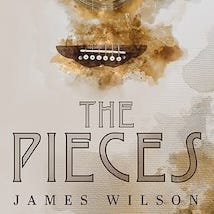
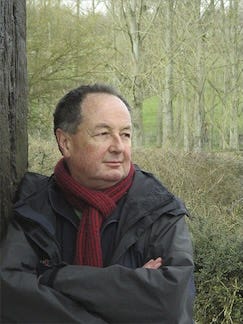
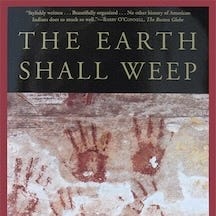
A dear friend of mine, the author most famously of the indigenous history The Earth Shall Weep: A History of Native America, wrote another novel last year called The Pieces. I found it absorbing and rich in period flavors. James asked me for a quote:
“When you read a slice of rock fiction this juicy, with this much ravishing detail about the Woodstock era, you swear the music somehow lives on beyond the book. Adam Earnshaw, our protagonist, wanders into the college pub scene as the great lost singer-songwriter who gets swallowed up by an obscenity: The Sixties. You'll rave about the similes ('three jeering gargoyles erupting from a wall'), precise musical descriptions ('the sense of being led across a swaying rope bridge, and then—miraculously—delivered safe to the other side'), and pungent asides ('The only possible truth now is partial, fractured, subjective'). You'll stay for the rich characters, how they seem to negotiate their own stories, and the handsome gift of Wilson's prose.”
Author page
Publisher page
Waterstone’s
noises off
More on why Joe Walsh joined the Eagles (“Worse than coopting a guitarist, the Eagles made Walsh sound tame, which felt criminal…”), and Rob Sheffield’s Solo Beatles List, rejoined, now with comments (from Jeremy Shatan). Also: Otis Redding sings Lennon-McCartney.
When fish became obnoxious: the riley rock index: obits, bylines, youtube finds, reference sites, pinterest, beacons.ai, random deep link



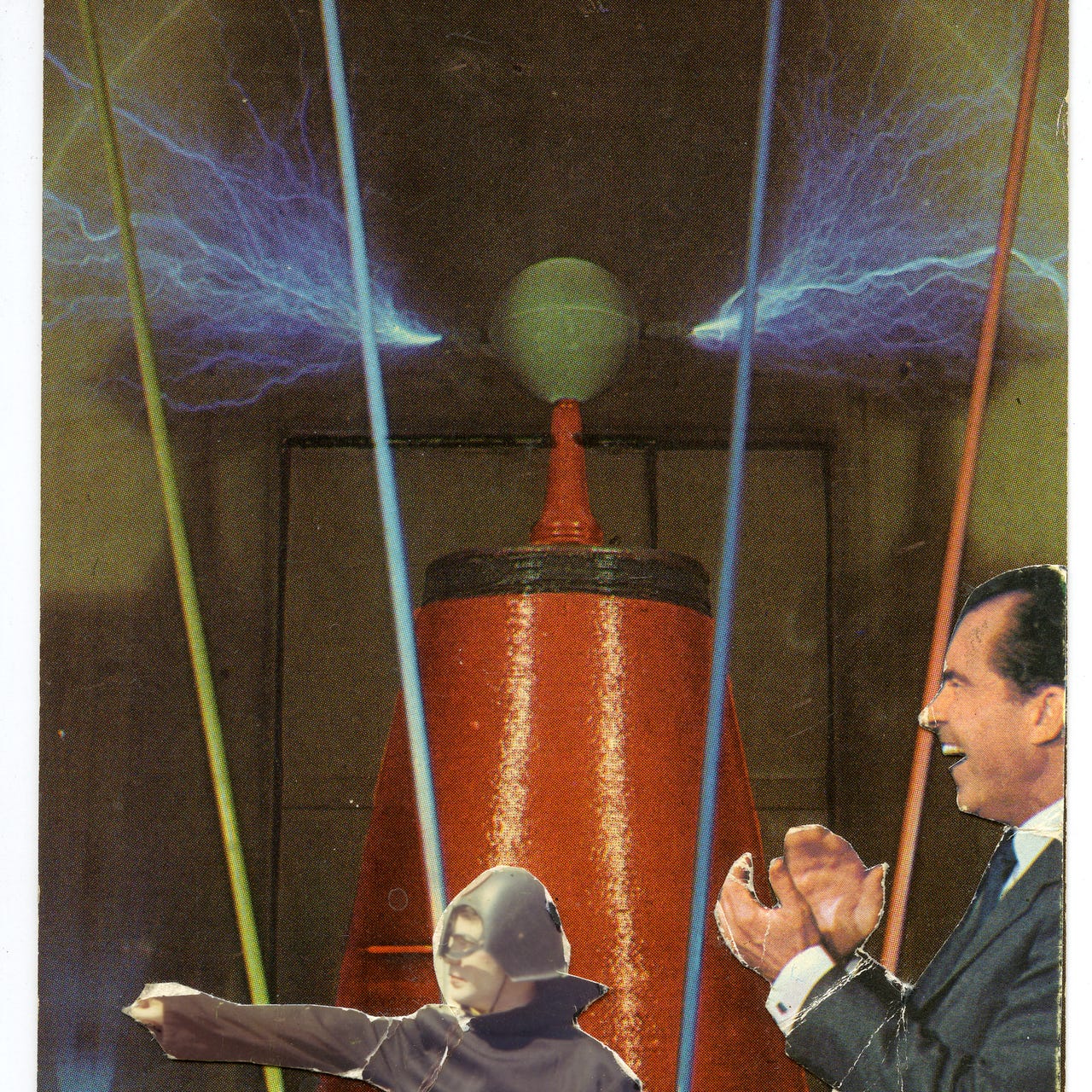
Yup….
https://open.substack.com/pub/johnnogowski/p/if-this-isnt-nice-what-is?r=7pf7u&utm_medium=ios